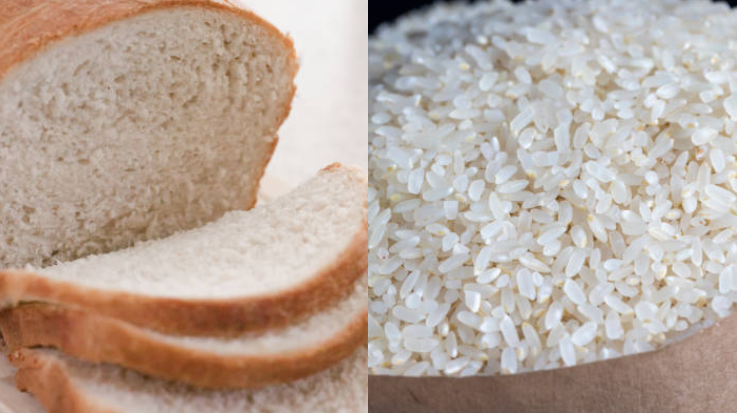White Bread Vs. White Rice: Which is Better For You?

What To Know
- Both white bread and white rice have a high glycemic index (GI), meaning they can cause a rapid spike in blood sugar levels.
- Both white bread and white rice can be part of a balanced diet when consumed in moderation.
- Can I eat white bread or white rice if I have diabetes.
When it comes to staple food choices, white bread and white rice often take center stage. Both are widely consumed worldwide, providing essential carbohydrates for energy. However, there has been an ongoing debate about their nutritional value and health implications. This blog post delves into the nutritional profiles, health benefits, and potential drawbacks of white bread and white rice, helping you make informed decisions about your dietary choices.
Nutritional Showdown: White Bread vs White Rice
1. Macronutrients:
White Bread:
- Carbohydrates: 45-55 grams
- Protein: 5-10 grams
- Fat: 1-2 grams
White Rice:
- Carbohydrates: 45-55 grams
- Protein: 4-5 grams
- Fat: 0-1 gram
2. Micronutrients:
White Bread:
- Vitamin B1 (Thiamin): Good source
- Vitamin B3 (Niacin): Good source
- Iron: Fortified
White Rice:
- Vitamin B1 (Thiamin): Good source
- Vitamin B3 (Niacin): Good source
- Iron: Fortified
Health Benefits of White Bread and White Rice
1. Energy Source:
Both white bread and white rice provide a quick source of energy due to their high carbohydrate content. This makes them ideal for active individuals or those engaging in physical activities.
2. Fortified Nutrients:
Many countries fortify white bread and white rice with essential nutrients, such as iron and B vitamins. This helps address potential deficiencies and contribute to overall nutritional well-being.
Potential Drawbacks of White Bread and White Rice
1. Refined Grains:
White bread and white rice are made from refined grains, which have undergone extensive processing. This process removes the nutrient-rich bran and germ, resulting in a loss of fiber, vitamins, and minerals.
2. High Glycemic Index:
Both white bread and white rice have a high glycemic index (GI), meaning they can cause a rapid spike in blood sugar levels. This can be problematic for individuals with diabetes or those at risk of developing it.
Whole Grains vs Refined Grains: A Healthier Choice
1. Whole Grains:
Whole grains, such as whole wheat bread and brown rice, contain all parts of the grain, including the bran, germ, and endosperm. They are rich in fiber, vitamins, minerals, and antioxidants.
2. Health Benefits of Whole Grains:
Consuming whole grains has been associated with a reduced risk of heart disease, stroke, type 2 diabetes, and certain types of cancer. They also promote digestive health and provide a feeling of fullness.
Choosing the Healthier Option: White Bread or White Rice?
Ultimately, the choice between white bread and white rice depends on your dietary goals and preferences. If you prioritize whole grains for their nutritional benefits, opt for whole wheat bread or brown rice. However, if you occasionally indulge in refined grains, moderation is key.
The Bottom Line: Making Informed Choices
Both white bread and white rice can be part of a balanced diet when consumed in moderation. However, opting for whole grains more frequently provides significant health advantages. By understanding the nutritional profiles and potential drawbacks of these staple foods, you can make informed choices that align with your health goals.
FAQ:
1. Is white bread or white rice better for weight loss?
Whole grains, such as whole wheat bread and brown rice, are generally better for weight loss compared to refined grains. They are more filling and provide sustained energy, helping you feel satisfied and reducing the likelihood of overeating.
2. Can I eat white bread or white rice if I have diabetes?
Individuals with diabetes should consume refined grains, such as white bread and white rice, in moderation. These foods have a high glycemic index, which can cause rapid spikes in blood sugar levels. Opting for whole grains or consuming refined grains with protein and fiber-rich foods can help manage blood sugar levels.
3. Are there any gluten-free alternatives to white bread?
For individuals with celiac disease or gluten sensitivity, there are many gluten-free bread options available. These breads are made from alternative flours, such as almond flour, coconut flour, or buckwheat flour.